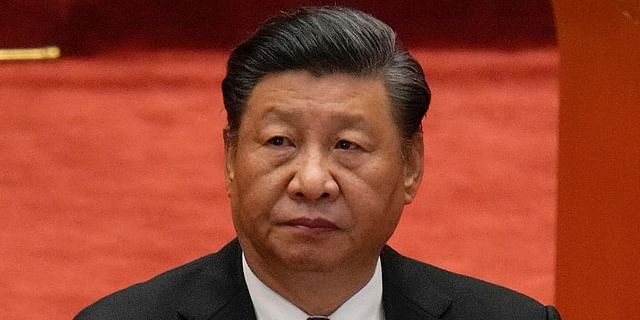 BEIJING: Chinese President Xi Jinping has called for further measures to tighten the state’s control over religious affairs in the country, including the “sinicization” of faiths which broadly means bringing them in line with the policies of the ruling Communist Party.
BEIJING: Chinese President Xi Jinping has called for further measures to tighten the state’s control over religious affairs in the country, including the “sinicization” of faiths which broadly means bringing them in line with the policies of the ruling Communist Party.
An official white paper released in 2019 said China has about 200 million believers – majority were Buddhists in Tibet.
Others included 20 million Muslims, 38 million Protestant Christians and 6 million Catholic Christians; besides 140,000 places of worship.
Xi, 68, head of the Communist Party of China (CPC), the powerful military and the Presidency and widely expected to remain in power for life, has been calling for “sinicization” of religions, re-orienting them to function under the guidance of the CPC which ideologically remains atheist.
“It is necessary to improve the democratic supervision of religious leaders, and push for the rule of law in religious work, and carry out in-depth publicity and education about the rule of law,” Xi told a national conference on work related to religious affairs held during the weekend here.
The conference, attended by the country’s top leadership, was the first since 2016 and sets the parameters on China’s religious affairs and their regulation over the next few years, according to experts.
In his address, Xi said China will further promote “sinicization of religion”, with a focus on strengthening control of online religious affairs, pointing out that it is imperative to uphold the principle of developing religions in the Chinese context, state-run Xinhua news agency reported.
The party’s policy on freedom of religious belief should be fully and faithfully implemented and religious groups should stand as a bridge and a bond connecting the party and the government with people from religious circles and the vast religious believers, he said.
The meeting took place in the backdrop of widespread accusations of repressive control on Muslims and Christians in China, as well as the country’s increasing tight supervision over religions, the Hong Kong-based South China Morning Post reported.
Last month, China was among several nations designated by the US as “countries of particular concern” for violations of religious freedom.
Also, China is accused of following repressive religious policies amounting to genocide against Uyghur Muslims in the restive Xinjiang province.
The CPC apprehends foreign religions, especially Christianity, fearing subversion of its rule, like in Poland where the Church movement was instrumental in overthrowing Communist rule in 1989.
In his address, President Xi also underlined that efforts should be made to keep enhancing the recognition of the motherland, the Chinese nation, the Chinese culture, the CPC and socialism with Chinese characteristics among religious personages and believers.
Religious personages and believers should be guided to cultivate core socialist values and put them into practice and promote Chinese culture, he said.
Religious activities should be carried out within the scope stipulated by the laws and regulations, and should not impair the health of citizens, offend public order and good morals, interfere with educational, judicial and administrative affairs as well as social life, Xi said.

























